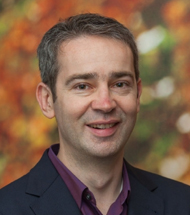Nuevos enfoques sobre la soberanía popular, a debate en un workshop de Princeton copatrocinado por el ICS
Fue presentado por el Programa James Madison en Ideales e Instituciones Americanos de esa universidad estadounidense y contó con financiación del Ministerio de Economía y Competitividad

FOTO: Manuel Castells
La Universidad de Princeton (EE. UU.) celebró el 22 de septiembre de 2017 el workshop ‘We, the People: Rethinking Narratives of Popular Sovereignty’ (Nosotros, la gente: repensando las narrativas de la soberanía popular). Fue copatrocinado por el Instituto Cultura y Sociedad (ICS) de la Universidad de Navarra y el Ministerio de Economía y Competitividad.
La actividad está relacionada con un proyecto de David Thunder, investigador de ‘Religión y sociedad civil’ del ICS, sobre un nuevo paradigma de orden social y autogobierno, el pluralismo asociativo. Esta propuesta busca dar una representación eficaz a las distintas asociaciones presentes en la sociedad y delegar gran parte de las tareas de gobierno a los ámbitos locales. David Thunder lo desarrolla gracias a una Beca Ramón y Cajal del Ministerio.
Durante el workshop, el experto se centró desde un punto de vista crítico en la soberanía popular y autogobierno. Partió de la idea de que el Estado moderno “se basa en la noción de que sus ciudadanos, al autorizar que los funcionarios puedan gobernar en su nombre, puedan conferir su poder colectivo a las instituciones del Estado, y se constituyen así como un ‘pueblo soberano’”, explicó.
Planteó que diversos pensadores dudan de la utilidad de esta noción y su institucionalización a través de la democracia representativa: “Junto con su bagaje institucional, la noción de ‘pueblo soberano’ tiende a facilitar la dominación de los procesos y resultados políticos mayoritarios y de élites, desviándolos de los verdaderos intereses de las partes afectadas”.
El propósito del trabajo que presentó fue “ofrecer un diagnóstico de la insuficiencia del Estado soberano como marco para el autogobierno racional, cómo tiende a legitimar estructuras uniformes de gobierno que son inadecuadas para una sociedad compleja y plural”, comentó.
El evento contó también con otras dos ponentes de centros de EE. UU.: Paulina Ochoa, de la Universidad de Haverford, y Barbara Buckinx, de Princeton. Boleslaw Z. Kabala, de este último centro académico, expuso las conclusiones finales.
El pueblo democrático como procesoEn su ponencia, Paulina Ochoa describió las paradojas que surgen al definir un pueblo democrático y el debate sobre la naturaleza y la función del demos en una democracia.
“Las definiciones de los eruditos y los juicios del populismo dependen de si se concibe ‘El Pueblo’ como un hecho histórico -como lo hacen los populistas- o como un hipotético ideal para orientar la legislación -la opinión de los liberales-”, destacó. Su propuesta consistió en tener en cuenta al pueblo democrático como proceso.
Por su parte, Barbara Buckinx justificó la extensión del estatus de ‘ciudadanía’ a los residentes no ciudadanos. La especialista evaluó críticamente algunas propuestas que podrían dar respuesta al problema de estos últimos y sugirió formas alternativas para que los Estados puedan atender su reivindicación.





